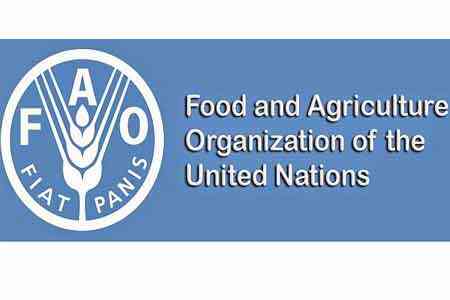


ArmInfo.Recent floods in Armenia confirm the need to ensure food security. Flooding in Lori and Tavush has contaminated water supplies and food sources, increasing the risk of foodborne illness, highlighting the need to strengthen food safety measures in Armenia. This is stated in a joint message from the Food and Agriculture Organization of the United Nations (FAO) and the World Health Organization (WHO) on the occasion of World Food Security Day.
However, the message states that each year World Food Safety Day is an important reminder that food safety is a collective responsibility.
"Being prepared is critical in case of natural disasters, as well as power outages, food poisoning or other unforeseen emergencies. Ensuring food security is important and relevant for every country.
Development and improvement of food safety is one of the priorities of the government of Armenia, which has made significant progress in improving food safety, following global standards," the statement said.
At the same time, it is emphasized that FAO and WHO in Armenia jointly promote the multisectoral One Health approach and support the development and improvement of food safety policies.
It is also noted that FAO is supporting the Government of Armenia in developing scientific, analytical and expert capacity in the areas of risk analysis, food safety early warning systems and food safety emergency response.
"WHO played an important role in the multisectoral assessment process to prevent, detect and respond to public health risks. The joint external assessment helped the country identify gaps in human and animal health systems and provide recommendations to the government, including on food safety and antimicrobial resistance "The results of the external assessment serve as the basis for the development of the National Health Security Action Plan," the statement said.
"As a result of many years of close collaboration with the Government of Armenia, FAO and WHO contributed to improving industry policies, strengthening the capacity of national laboratories and related infrastructure to collect and share data on antimicrobial resistance and the detection of antimicrobial residues. They also supported the national strategy for developing a multisectoral action plan to prevent and control the spread of antimicrobial resistance," the statement said.